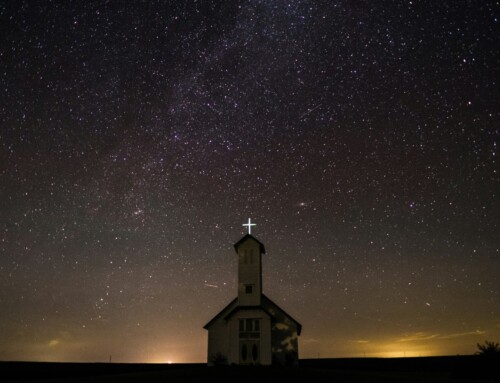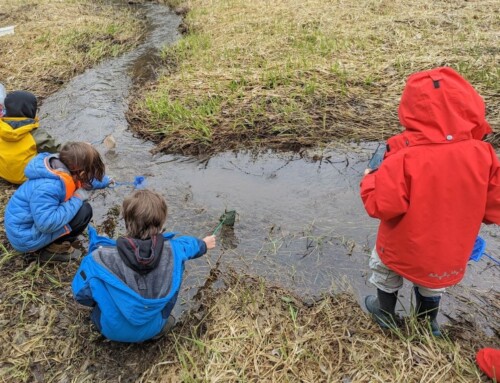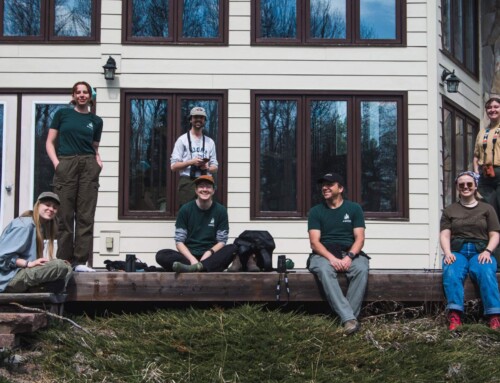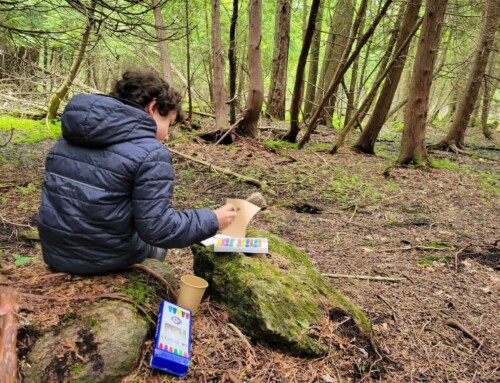Learning to Live in Place
A Summer Worker’s Reflection on Dedicating Oneself to Loving Place and Caring for its Community.
By Abby Ciona, A Rocha Conservation Science & Communications Assistant (Summer 2025)
October 7, 2025
Upon graduating with my undergraduate degree in spring 2025, I worried that leaving school meant I would leave the seasonal rhythms I had grown used to: studying, midterms, exams, reading break and summer. I was anxious that every day would be the same now: I would be trapped in the same job, doing the same thing every day, working nine to five, five days a week, for the rest of my life.

Taking a break from eelgrass surveys in Semiahmoo Bay to explore tide pools!
I was very grateful when the opportunity arose for me to work this summer for A Rocha BC. It was an unusual circumstance, where I started by a few weeks doing remote communications work from home in Ontario. I enjoyed getting to read and write about the organization and to see the different projects they worked on, and it was nice having the flexibility of working on my own schedule.
But as convenient as remote work is, it can also be lonely and isolated. I was excited to work and live in-person at A Rocha BC for the rest of the summer helping on the conservation science team, especially since I hadn’t been to British Columbia before.
Arriving at A Rocha BC and settling into my on-site apartment was a jetlagged whirlwind, but I was promptly welcomed by smiling staff and introduced to everyone at lunch, where we were served a meal full of colourful vegetables grown on-site. People were especially excited about the tomatoes — after months of having tinned tomatoes in their meals, the farm-fresh tomatoes were incomparable.
During my time in BC, I did and saw things I never could at home. I helped rescue salmon and other fish stuck in an isolated pool in the Tatalu. I removed invasive Himalayan blackberry plants on Restoration Saturdays and watched that little patch of land be transformed over the weeks as we added paper and mulch to protect the planted native species. I helped collect data on eelgrass in Semiahmoo Bay and spotted schools of anchovies swimming under our boat. Everything was so new to me, from the trees to the birds to the slugs.

Creatures spotted around the A Rocha BC Centre. Clockwise from top left: eastern cottontail (Sylvilagus floridanus), European mantis (Mantis religiosa), Pacific banana slug (Ariolimax columbianus), and woodland skipper (Ochlodes sylvanoides).
I was surprised by how much people took for granted the ability to drive to the ocean in half an hour or to see hummingbirds year round. I began to wonder if I would begin to feel indifferent to those things too during my summer. Then, when my summer at A Rocha was over, would I go home and feel stuck again in wishing I were somewhere else, somewhere more interesting than home?
Living and working at A Rocha helped me begin to understand a way to combat those opposite feelings of monotony in the everyday and wanderlust for something new. The solution? Learning to live in place.
A Rocha is full of people living and working with the changing seasons, migrations, planting and harvesting, school and holidays. The property is busy with extra workers, guests, and volunteers in the summer, but quiets down in the fall. Seasons of work and rest are built into the work that A Rocha does. Some staff live on site year round in the heritage buildings on property, and others, like me, come and stay for a season.
Living in place like this helps you see the new and beautiful in each new day. It also gives you a sense of grounding and rootedness, a community and environment to come home to. Not every job is dependent on the seasons, but anyone, regardless of their stage of life or job, can find different ways to live in place.

A Douglas’s Squirrel (Tamiasciurus douglasii) snacking on maple keys in the forest at the A Rocha BC Centre.
Immersing yourself in nature is one way to live in place. You can learn about bird migrations or the times of year that different plants flower, or participate in seasonal outdoor adventures like skiing or swimming.
Keeping a garden or purchasing local produce is another way to live in place. We live in an age where you can purchase almost any food year-round from a major grocery store. But when you intentionally shop locally, you are more mindful of the seasons around you.
I’m glad I came out to BC for the summer. Travelling to new places is exciting and having new experiences is important, valuable, and good. But it’s also healthy to have roots. I believe we can make the biggest difference as conservationists and Christians when we dedicate ourselves to a certain place, to nurturing it, caring for the community, watching it grow and come alive. We get to know the people, plants, fungi, and creatures around us. And the more we learn about them, the more we care for them.







